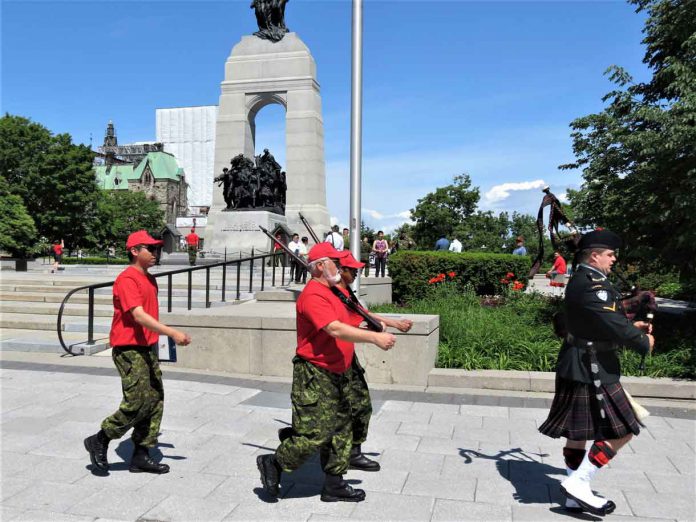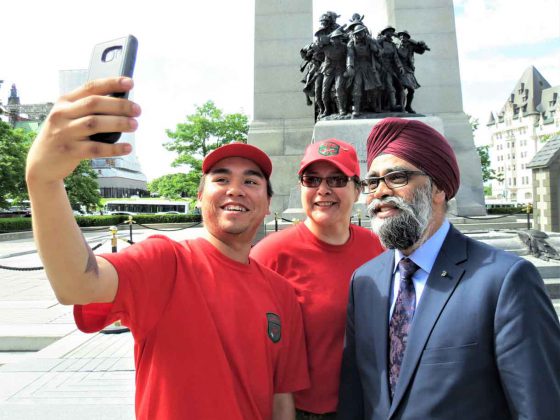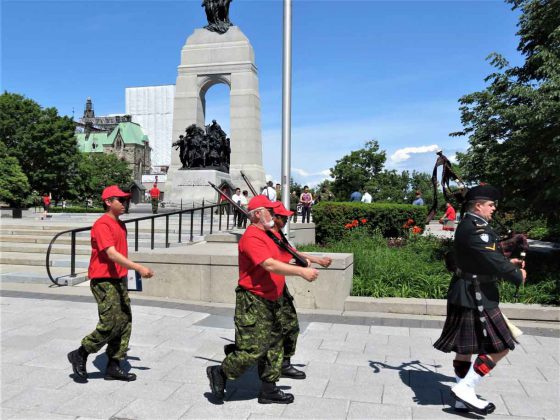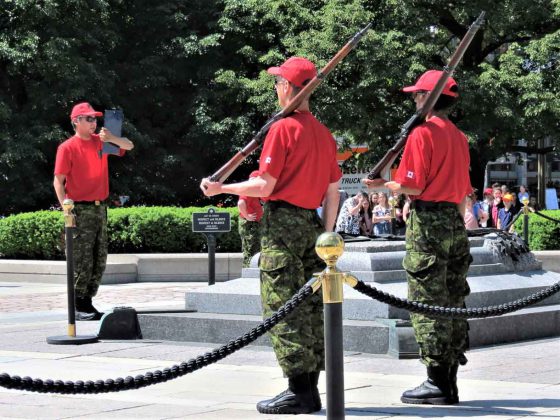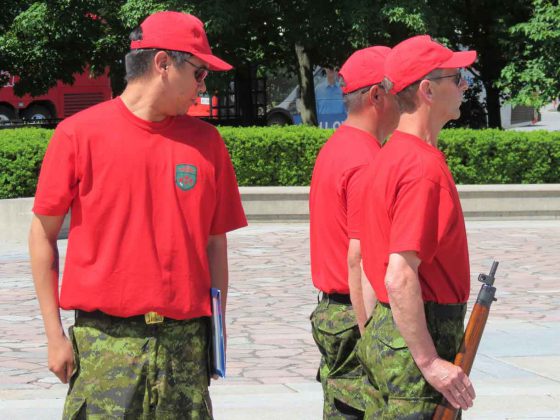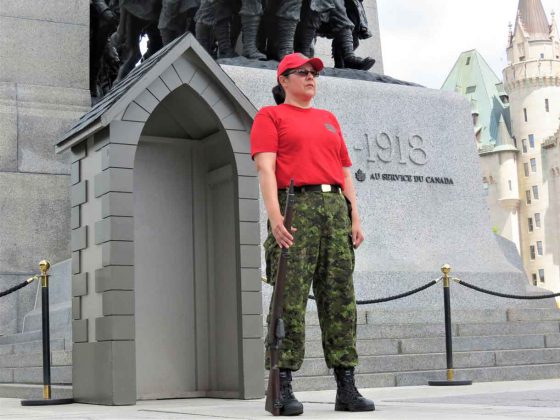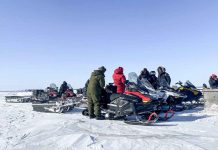OTTAWA – Two Canadian Rangers from Northern Ontario are among a small group of Rangers selected from across Canada to guard the Tomb of the Unknown Soldier in Ottawa.
“It’s a huge privilege and honour to be doing this,” said Master Corporal Andrew (Angus) Sutherland of Moose Factory.
The Tomb lies in front of the National War Memorial and is guarded by members of the Canadian Armed Forces during the summer months when it is visited and seen by thousands of people from around the world.
Eleven Rangers, who are part-time army reservists, drawn from across the Canadian North, are guarding the tomb for a week this summer.
“I’ve been a Canadian Ranger since 1999,” said Corporal Paula Nakogee of Fort Albany. “It’s a huge honour and a once-in-a-lifetime opportunity to be a part of the National Sentry Program. I’ve never done anything like this before.”
While some of the visitors laugh and joke as they view the Tomb, others are quiet and respectful, and for many, it is an emotional moment.
“Some of the people visiting pray,” Corporal Nakagee said. “One lady knelt down and bowed her head in front of the Tomb. It gave me goosebumps to see her. It’s a very emotional experience to see things like that.”
Master Corporal Sutherland also found being on duty at the Tomb had special significance for him.
“I had a great-great-grandfather who was in World War One and survived,” he said. “Before our first day of duty, I went up to the Memorial and laid some tobacco in front of the Tomb and prayed. I laid the tobacco for my great-great-grandfather and for all past, present, and future soldiers, and for the Rangers who are standing guard here and representing all the other Rangers across the country.”
There are about 5,000 Canadian Rangers in more than 200 remote and isolated communities across the North.
Master Corporal Sutherland said meeting the other nine Rangers who are standing guard has been a big learning experience. They come from as far west as British Columbia, as far east as Newfoundland and Labrador, and as far north as Nunavut and sharing experiences with them has been fascinating, he said.
The Rangers take turns standing guard for an hour at a time. They also take turns being the guard commander when the two guards replacing the two on duty are led to the Tomb by a military bagpiper. The commander inspects the new guards’ uniforms, reads out their orders in a loud voice, and then orders them to their posts.
“It was hard to learn all the drill,” said Corporal Nakogee. “We spent hours each day drilling and drilling until we got it right.”
The eleven Rangers were visited by three federal Cabinet ministers who thanked them for mounting guard at the Tomb and for their service as Rangers in their home communities. The three were National Defence Minister Harjit Sajjan, Indigenous Services Minister Seamus O’Regan, and Veterans Affairs Minister Lawrence MacAulay.
In 2014 a guard at the Tomb, Corporal Nathan Cirillo, an army reservist with the Argyll and Sutherland Highlanders of Canada regiment in Hamilton, was shot and killed by a gunman who then managed to enter the nearby Centre Block Parliament building where he shot and wounded a constable before being shot to death by police.
Military Police now maintain a watch at the Tomb along with the ceremonial guards.
(Sergeant Peter Moon is the public affairs ranger for the 3rd Canadian Ranger Patrol Group at Canadian Forces Base Borden.)


